Teka is a reference in the history of sponsorship in sports. The company’s contribution has seen several of the most relevant moments of sport throughout its 100 years of history. During this time, Teka’s support in different areas has built some of the most remarkable stories of modern sports, becoming a leader brand and defining an era in this field. One of the first steps for Teka into sports was football sponsorship, a close and fruitful relationship with events that are part of everybody’s memories.
The first sponsorship in Spanish sports
Everything began in 1981 when Teka became the first brand to sponsor a football team in Spain. It was also one of the first football team sponsorships in Europe. On December 27th, the Teka logo showed off on the Racing de Santander football team shirt in a Spanish Liga match against Real Madrid C.F. at the Santiago Bernabeu stadium. This match, the 17th of the Spanish League, ended with a 4–0 victory for Real Madrid. Racing de Santander finished that season in 12th place in the championship.
The act of displaying advertising on a professional football league shirt had no precedent until that moment. Racing de Santander had to request authorisation from the Spanish Football Federation to print the shirts with the German brand name. This gesture changed the history of Spanish football forever. Shortly after, many other brands began sponsoring football teams. At that time, Teka paid around 60,000 euros for the sponsorship of the whole season.
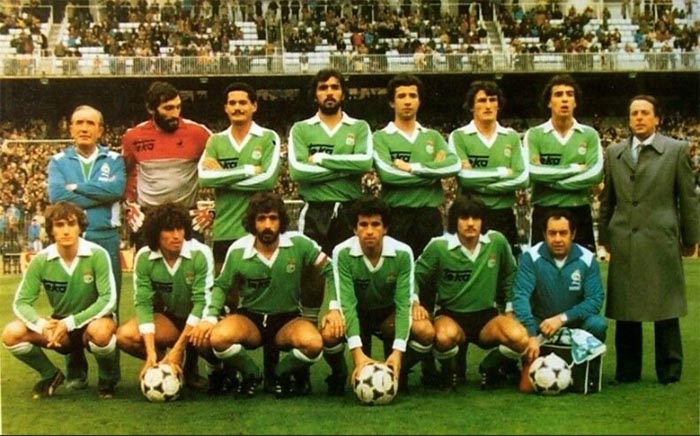
Sponsorship of the Racing de Santander Football Club
Over the following years until 1989, Teka was the Racing de Santander sponsor, featuring the company’s logo on the shirt. For almost a decade, they wore the German brand’s logo design, managing to stay in the top division of Spanish football with team players only from Cantabria, a northern region of Spain, mostly.
Real Madrid football club
In 1992, another significant moment of sports sponsorship took place. Teka became Real Madrid C.F. official sponsor. At that time, the Real Madrid team was still living the last years of the well-known Quinta del Buitre, with Emilio Butragueño leading an unforgettable generation of players with Míchel, Sanchís, Martín-Vázquez, and Pardeza.
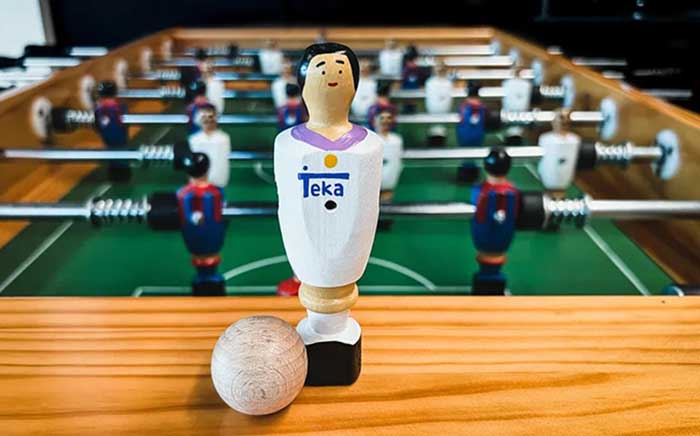
Another key player for the team arrived that same season as a new star, Iván Zamorano, from Chile. At the same time, Robert Prosinecki, one of the standout signings for the club in recent years, returned to play after an injury.
An unstoppable career throughout the 1990s
Two Spanish leagues lost in the last minute in Tenerife marked those years, with two matches full of controversy and mistakes but also with excitement until the end. Jorge Valdano was the Tenerife team coach then. He joined Real Madrid soon after, in 1994. It was in 1992 as well when Real Madrid formed one of the best lineups in history with a remarkable style, winning the Spanish league and achieving other memorable victories, such as the 5-0 triumph over FC Barcelona at the Santiago Bernabéu stadium. It was in 1994 that the legendary Real Madrid player Raúl González Blanco made his first appearance.
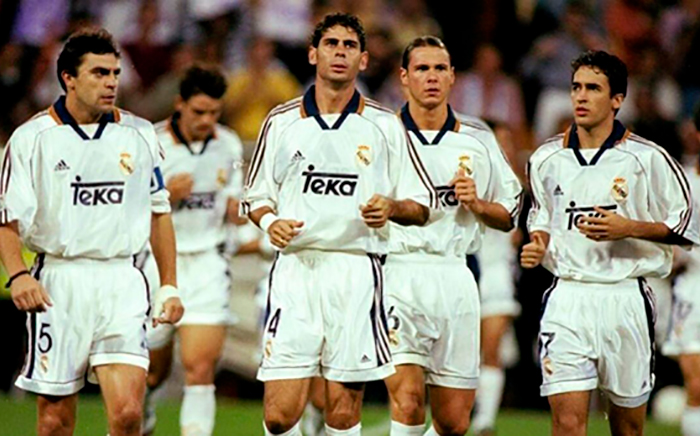
In 1996, the Italian Fabio Capello signed as the new coach. The same year, with Teka sponsorship, the white team brought together a cast of legendary football stars. Mijatovic, Suker, Roberto Carlos, and Seedorf joined the club, along with a roaster of players already in the team like Fernando Redondo, Hierro, Amavisca, and Cañizares. Additionally, a new generation of talents led by Raúl González with names such as Guti, Álvaro Benito, and Víctor Sánchez emerged.
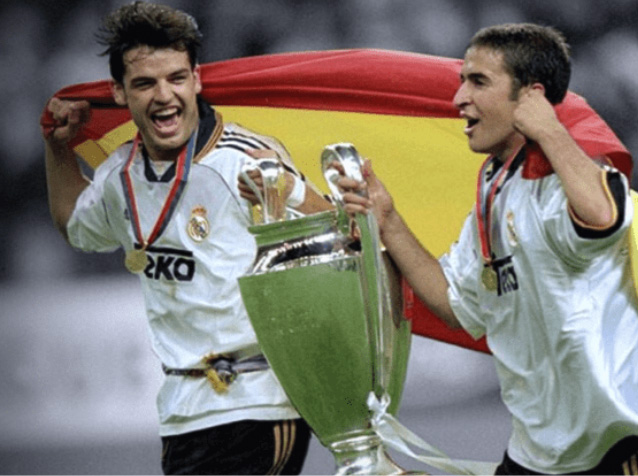
Legendary players
The team achieved good results that season, winning the Spanish league title and playing against FC Barcelona with a young Ronaldo Nazario as part of the Catalonian team. In the following season, Jupp Heynckes became the new coach, and the club signed some relevant players like Fernando Morientes, the Brazilian Savio, or the French Christian Karembeu. One of the milestones of the club took place that season when the team won the club Seventh European Cup. On May 20th, 1998, at the Amsterdam Arena, Real Madrid C.F. defeated Juventus of Turin 1-0 with a Pedja Mijatovic goal and a lineup including Zinedine Zidane, Inzaghi, and Del Piero.
The title was the end of 32 years of trying to win the European Cup without success. The following day after the match, Real Madrid celebrated the title beside the goddess Cibeles statue in Madrid, the no-official symbol of the club. More than half a million people attended the celebration in the streets of Madrid.
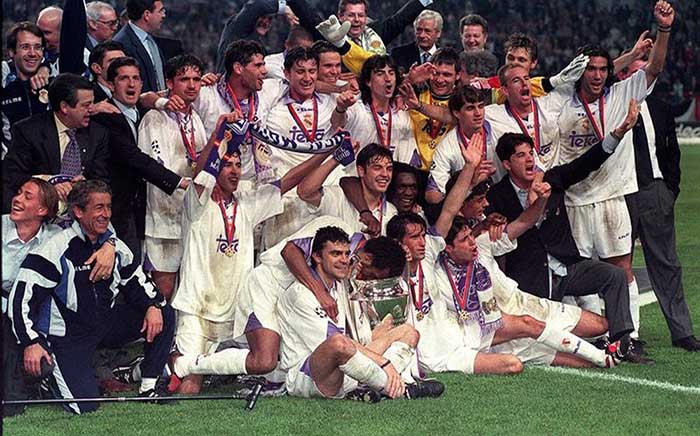
In 1999 Real Madrid signed Vicente del Bosque as the new coach with other significant signings, like Steve McManaman, Nicolas Anelka, Míchel Salgado, and Iván Herrera. It was also the debut of another legendary player: Íker Casillas. The Madrid-born player made his debut in the top division at just 18 years old in a match against Athletic de Bilbao.
Shortly, on May 20th, 2000, at the Saint-Denis Stadium in Paris, the club experienced another historic moment. The final match of the European Cup took place between Real Madrid and Valencia C.F. With a 3-0 victory for Real Madrid, winning the eighth European Cup after only two years of the seventh. Morientes, McManaman, and Raúl scored in that unforgettable match.
Cádiz C.F. sponsorship
Teka became Cádiz C.F.’s main sponsor for the 2007-2008 season, with its logo on the Andalusian club shirt. Cádiz C.F. is one of the teams with the longest history in Spanish football, founded in 1910.
